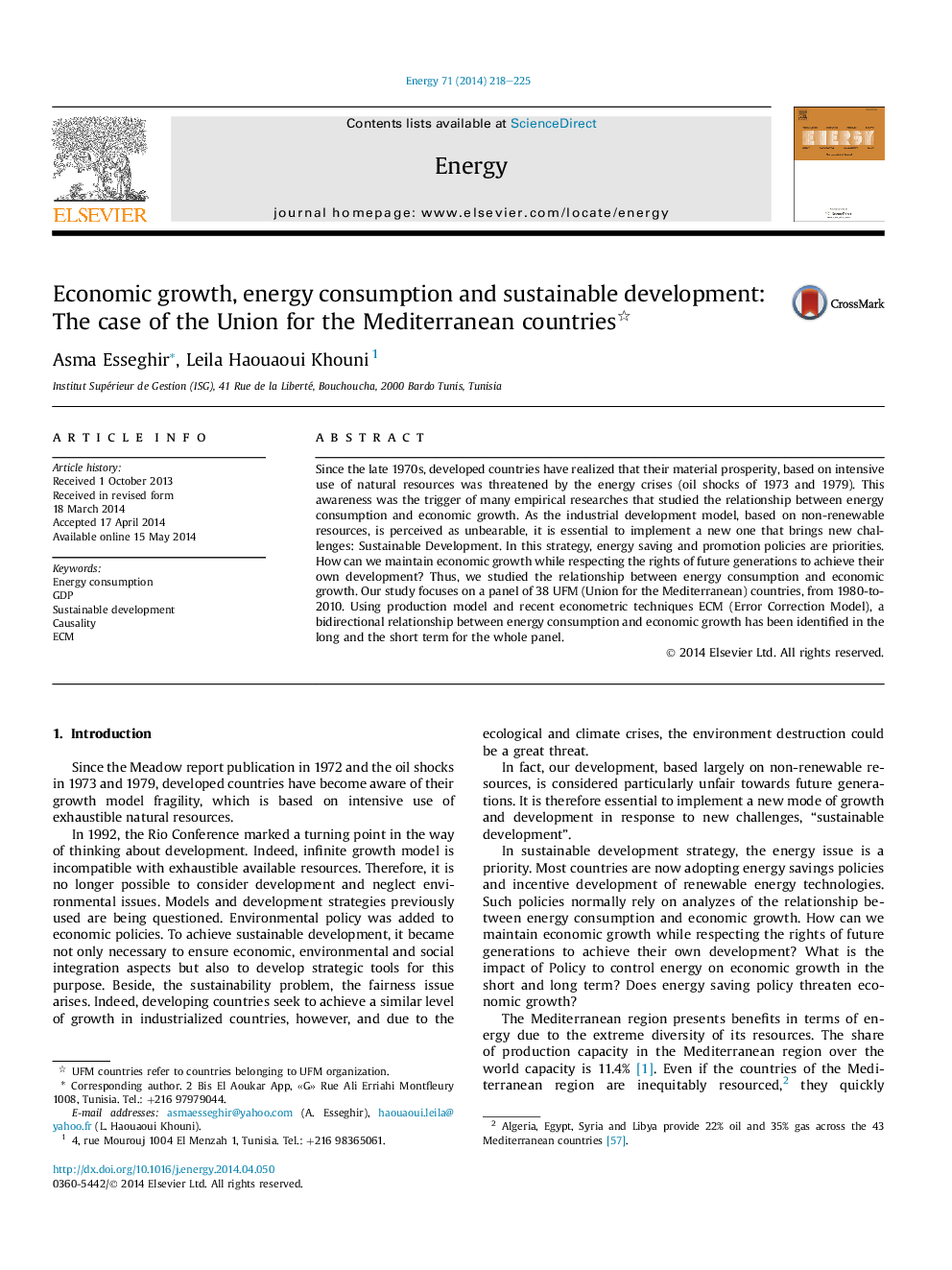| Article ID | Journal | Published Year | Pages | File Type |
|---|---|---|---|---|
| 1732387 | Energy | 2014 | 8 Pages |
•We studied the relationship between energy consumption and economic growth.•We use production model and recent econometric techniques of Westerlund ECM (Error Correction Model).•We use 38 UFM (Union for the Mediterranean) countries panel, from 1980-to-2010.•We find bidirectional energy–growth panel causality in short and long-run.
Since the late 1970s, developed countries have realized that their material prosperity, based on intensive use of natural resources was threatened by the energy crises (oil shocks of 1973 and 1979). This awareness was the trigger of many empirical researches that studied the relationship between energy consumption and economic growth. As the industrial development model, based on non-renewable resources, is perceived as unbearable, it is essential to implement a new one that brings new challenges: Sustainable Development. In this strategy, energy saving and promotion policies are priorities. How can we maintain economic growth while respecting the rights of future generations to achieve their own development? Thus, we studied the relationship between energy consumption and economic growth. Our study focuses on a panel of 38 UFM (Union for the Mediterranean) countries, from 1980-to-2010. Using production model and recent econometric techniques ECM (Error Correction Model), a bidirectional relationship between energy consumption and economic growth has been identified in the long and the short term for the whole panel.
